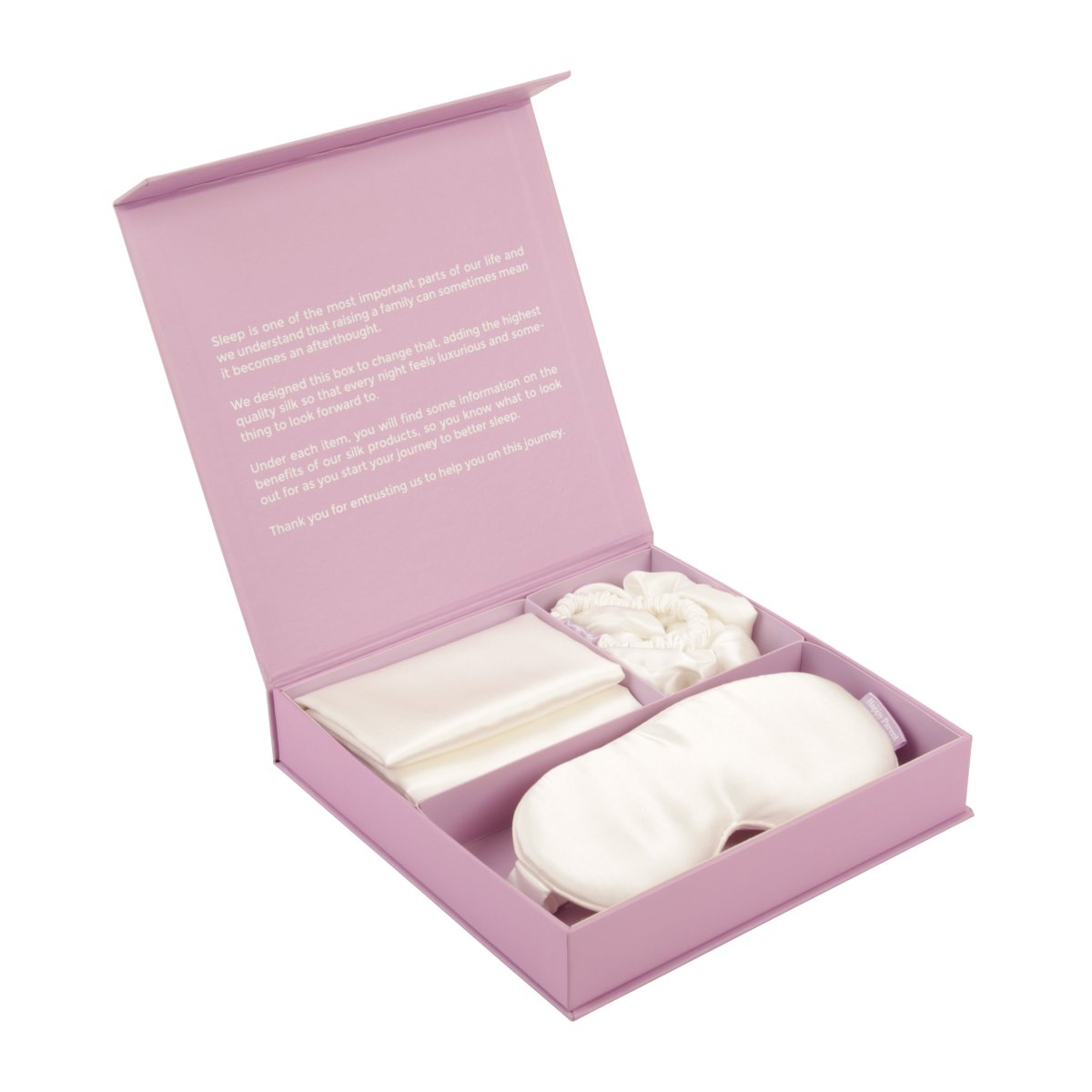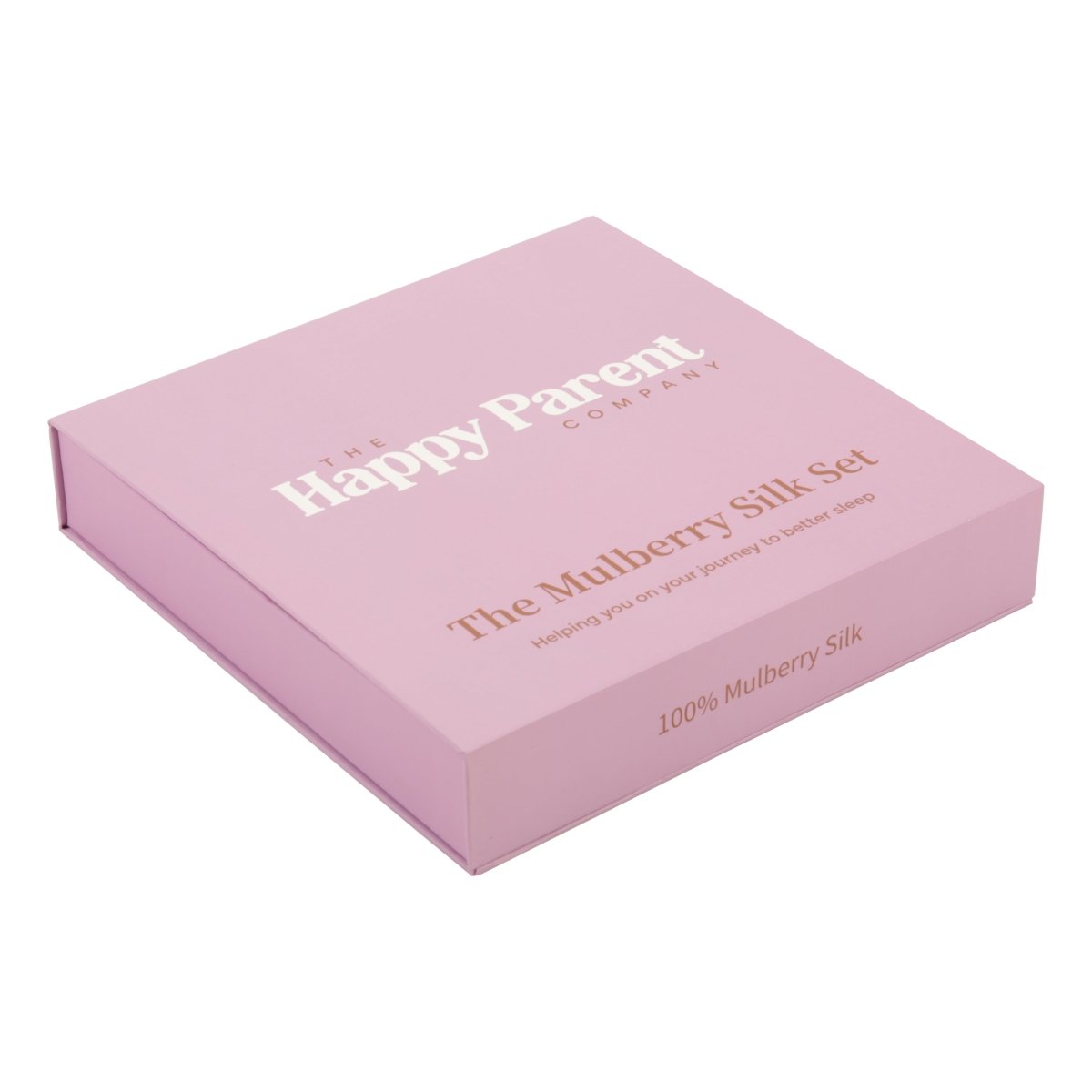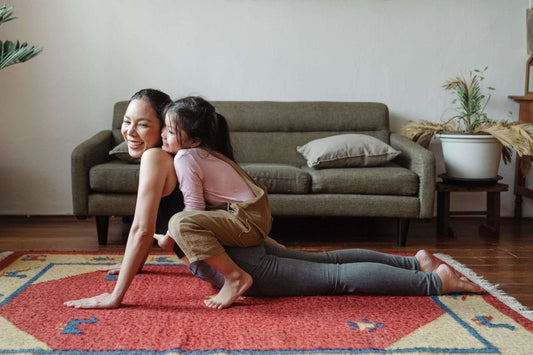So, you've got a new baby at home - congratulations! As any new parent knows, one of the hardest parts of those early months is establishing a good sleep routine. Babies don't come into the world with an inbuilt body clock, so it's up to you to gently nudge them into a pattern of sleeping and waking that suits your family. The good news is that with patience and persistence, you absolutely can teach your little one healthy sleeping habits. Over the next few months, you'll get to know your baby's unique personality and needs. Pay close attention to their tired cues, stick to a simple bedtime routine, and be flexible. With love and care, you'll build the foundation for years of sweet dreams to come. This guide will walk you through how to create a sleep schedule tailored to your baby in a kind and caring way. Before you know it, you'll all be sleeping like, well, babies!
Why Healthy Sleep Habits Are Important for Babies
As a new parent, one of the most important things you can do is help establish a healthy sleep routine for your baby.
Why is sleep so important for little ones though?
Several reasons:
- Sleep is essential for a baby's growth and development. While sleeping, their body produces hormones that spur physical and mental development. Lack of sleep can stunt a baby's growth.
- Sleep impacts a baby's mood and behaviour. Not getting enough sleep leads to fussiness, irritability, and difficulty soothing a baby. A well-rested baby will be happier and easier to care for.
- Sleep establishes circadian rhythms and the difference between day and night. Newborns don't know the difference yet, so you need to teach them by keeping stimulation and interaction during the day and making nighttime quiet and dark. This helps set their body clock.
- Sleep gives new parents a much-needed break. Having some time to rest and recharge will make you a better parent during those waking hours. You'll have more patience and energy.
The benefits of good sleep hygiene are endless. As a new parent, making sleep a priority for your baby in those early months will pay off tremendously in their development and happiness, as well as your own well-being. Stick to a simple but consistent bedtime routine, swaddle them snugly, keep the environment dark and quiet, and be patient through the process. Sweet dreams!
How Much Sleep Do Babies Need at Different Ages?
Babies sleep a lot, but how much sleep do they actually need? As a new parent, it's important to understand your baby's sleep needs so you can help establish a healthy routine.
How Much Sleep Do Newborns Need?
Newborns (0-3 months) require the most sleep, averaging 14-17 hours a day. They sleep in short spurts, about 3-4 hours at a time, around the clock. Don't worry, this is normal and your baby's sleep will start to consolidate as they get older.
Sleep for 3-6 Month Olds
By 3-6 months, babies drop down to 12-15 hours of sleep. Their sleep starts to organise into longer chunks at night, and they have 2-3 naps during the day. At this age, you can start a simple bedtime routine to help them wind down, like a bath followed by a book or lullaby.
Sleep for 6-12 Month Olds
From 6-12 months, babies continue decreasing their sleep needs to 14-15 hours, with 2 longer naps and 10-11 hours of nighttime sleep. Their sleep-wake cycles are more defined, so stick to a consistent nap and bedtime routine. Don't worry if your baby experiences sleep regressions, as their development causes temporary hiccups. With patience and consistency, they will get back on track.
By understanding your baby's evolving sleep needs and patterns, you can establish the right environment and routines to promote healthy sleep habits from the start. Every baby is different, so find what works for your family and don't be afraid to ask your paediatrician for advice. The key is being responsive, flexible, and consistent.
Creating a Soothing Bedtime Routine for Your Baby
Creating a soothing bedtime routine for your baby is one of the best ways to help them develop healthy sleeping habits. The routine should be simple, consistent and help your baby wind down for sleep.
Keep a Consistent Schedule
Aim for a consistent bedtime and wake time, even on weekends. Having a predictable pattern will cue your baby that it's time to sleep. At around 6-8 weeks, you can start putting your baby to bed for the night between 7 pm to 8 pm.
A Calming Bedtime Routine
About 30 minutes before bedtime, start a calming routine like:
- A warm bath. The warm water can be relaxing and soothing.
- Gently massage your baby with lotion. Soft music, dim lighting and gentle touches stimulate melatonin production.
- Read a book together. Cuddle up and read a bedtime story. The snuggles and sounds will comfort your little one.
- Swaddle or wear a sleep sack. The snug feeling can be comforting.
- Play soft music. Lullabies, nature sounds or gentle instrumentals create a peaceful environment.
- Keep stimulation low before bedtime. Avoid screens, loud noises and rough play. Stick to quiet activities.
Nurse or Bottle Feed
If you bottle feed, give your baby their last bottle before starting the bedtime routine. If you're a breastfeeding mum, you can do a final feeding as the last step of the routine to help your baby fall asleep. The sucking motion is soothing and the warm milk will make them drowsy.
Establishing a calming pre-sleep routine and keeping a consistent schedule will help your baby understand that it's time to sleep. Be patient through the process, as it can take several weeks of consistency for babies to learn. With time and practice, your baby will get better at self-soothing and falling asleep easier.
Solving Common Sleep Problems in Babies
As a new parent, you want your baby to develop good sleeping habits and a predictable sleep schedule. However, it's common for babies to experience sleep problems from time to time that disrupt their routine. Here are some of the most common issues and how to troubleshoot them.
Difficulty Falling Asleep
If your baby has trouble falling asleep at bedtime or for naps, try:
- Sticking to a consistent and relaxing bedtime routine. A sequence of activities like a bath, a book, and a lullaby or white noise can be soothing and help them wind down.
- Avoiding screens, physical play, and sugary foods within an hour of bedtime. The blue light and stimulation can make it harder to fall asleep.
- Gently rocking, swaddling or giving your baby a pacifier or teething ring to suck on. The motion, snugness and sucking can be comforting.
- Playing soft music, nature sounds or white noise. The ambient noise can block out unpredictable sounds that might startle them awake.
Night Wakings
If your baby frequently wakes during the night, some things to try include:
- Not turning on the lights or playing. Keep the environment boring and activities limited so your baby associates nighttime with sleeping.
- Avoid feeding or rocking them to sleep, which can condition them to need those things to fall back asleep. Instead, you can give them a pacifier or gently pat them.
- Wait a few minutes before responding to see if they fall back asleep. Sometimes babies wake briefly and will self-soothe. Only check on them if they are crying hysterically.
The key is being consistent and helping your baby learn the difference between day and night. Don't get discouraged—it can take weeks or months, but if you stick with it, your baby will get better at self-soothing and sleeping through the night. The patience and consistency will pay off!
Teaching Your Baby to Self-Soothe and Fall Asleep Independently
Teaching your baby to fall asleep on their own is one of the greatest gifts you can give them (and yourself!). It will help them become better self-soothers and sleepers for life.
Establish a calming bedtime routine.
A predictable series of quiet activities like a bath followed by a book or lullaby will cue your baby that it’s time to sleep. Keep the lights dim and avoid screen time or rough play. A routine that lasts around 30 minutes is good for most babies.
Put your baby to bed drowsy but awake.
Rather than rocking or feeding your baby to sleep, place them in the crib when they’re drowsy. This helps them learn to fall asleep on their own. They may fuss at first but will learn to self-soothe over time. Check on them periodically and gently reassure them. Only intervene if the crying becomes intense or lasts more than 10-15 minutes.
Be patient through the process.
It can take several days or weeks of consistency for babies to master falling asleep independently. There will probably be some crying at first. Don’t give in by feeding, rocking or co-sleeping - that will only prolong the process. Remain patient and consistent. Your baby will get better at self-soothing and falling asleep, we promise!
Once your baby is asleep, leave the room.
Don't worry that your baby needs you in the room to sleep. Having their own separate sleep space helps them develop healthy sleep habits and independence. Use a baby monitor to keep an eye on them if needed.
Establishing good sleep habits early on will benefit your baby's development and quality of life for years to come. Though it requires patience, the reward of a well-rested baby and more time for yourself will make the effort worthwhile. Sweet dreams!
Conclusion
So there you have it, new parents. By following these tips for creating healthy sleeping habits for your little one, you'll help set them up for a lifetime of high-quality rest. It may take a few weeks of consistency, but establishing a soothing bedtime routine, keeping stimulation low in the hour before bed, and not rushing in at the first cry will help your baby learn to self-soothe and sleep through the night.
Sweet dreams to you and your little dreamer! With the gift of rest, you'll both wake up recharged and ready to take on the day. The effort is so worth it. Before you know it, you'll be reminiscing about these early days, so soak in the snuggles and enjoy this precious time. The rest will come.













